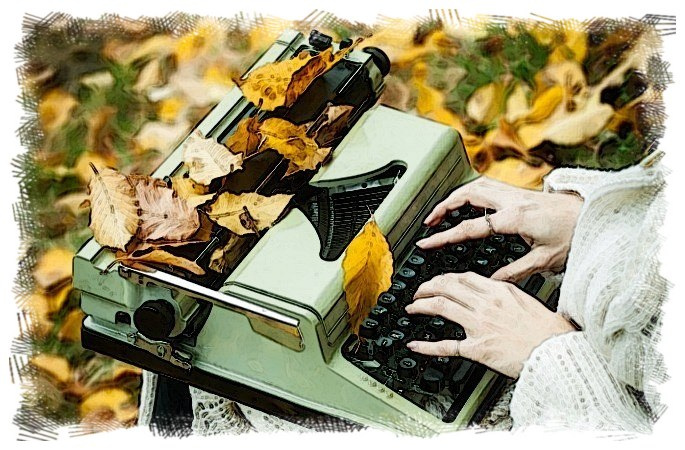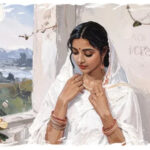Nithila: Like all great ideas amongst friends, this one came to us in the middle of the night over a phone call that lasted a couple of hours. But like all great ideas – like that Goa plan that groups of friends across the country make but then take a decade to make happen – I assumed this would be a pipe dream. Some day in the nebulous future – we were in the middle of the pandemic, after all – we would work on a book on friendship. Distant as it seemed, it was already offering me so much joy and hope in a particularly bleak time. Oh, the possibilities!
Shilpa: That conversation sparked a raging fire. In a world that had shrunk to mostly our homes, the idea of engaging with a world that was more expansive, a world that we had inhabited all our lives and never imagined otherwise, a world perhaps that we appreciated all the more for its loss, felt like a lifeline. It didn’t feel like a pipe dream. Surely there were more people like us who wanted to think and write and paint about friendship. It felt possible. We were having conversations with people we knew only virtually, and so it was that I pinged Arpita Das, publisher of the indie press Yoda saying I had an idea I wanted to run by her.
***
We let ourselves dream. The book would be an anthology – an anthology that would be wide and expansive and hold space for myriad imaginations of friendships. The pandemic had brought into stark focus how much the two of us depended on our friends to hold us through uncertain times. That led us, two academics, into doing what we do best, or do most – think about what scholarship we had read on friendship. South Asian feminist scholarship tended to focus on family and kinship, and the impact they had on women’s lives. Then we turned to our other loves – books and films – to explore friendship in the South Asian context. While the former had many great examples, the latter, we figured, tended to focus mostly on male friendships, at least in the Indian context.
Women are often left out of anthologies. Sumana Roy recently wrote about the complete absence of women essayists in Arvind Krishna Mehrotra’s 462-page anthology The Book of Indian Essays (2020). She writes about the supposedly wide range of essays that the publisher claims found space in the anthology before asking, “where were my contemporaries in it, the women essayists I’ve enjoyed reading in the last two decades of this century?… Was it possible that none of my female contemporaries had written in any of these sub-genres of the essay?” The erasure of women’s contributions is not just a South Asian phenomenon. In 2017, Irish women writers and poets signed a pledge to boycott anthologies where women are not fairly represented. This came on the heels of the publication of the Cambridge Companion to Irish Poets, which included only four women in an anthology of thirty poets. They cited multiple other similar anthologies that underrepresented women. At least the underrepresentation of women creators in literature, art, and film has been written about and documented, there is no comparable data about the representation of queer creators.
Putting women and queer in the title means certain identities are marked. What, we asked, if we had an anthology with only women and queer folx but did not mark it as such? What if we did what male editors often do – present as universal experiences that are particular? As we’ve established, anthologies edited by men which are full of men writers rarely explicitly claim they are by men. And yet, for us, these identities are more than representation, they are deeply political. And the choice to claim them is also a political choice. We have chosen to keep women and queer folx in the title because these are identities that are marginal, undermined, and underrepresented. Foregrounding them seeks to redress this balance, to make these voices more visible and relevant.
We also had a similar discussion in relation to the possibility of including South Asia in the title. The sub-title originally read, ‘A South Asian Anthology by Women and Queer Folx.’ We are, however, emphatically aware that anthologies from the Global North rarely locate themselves in that way in titles. Further, the term South Asia is also an imposed category – even as we strategically used it in our call for contributions, we did not want to draw attention to it. We, therefore, chose to leave South Asia out of the title though we write about it in our Introduction to the book.
Another dilemma that we confronted was that as Indian editors, our networks in this country are wider, and so we tried hard to ensure our call went to other south Asian countries. We shared it with friends in South Asia as well as on social media, where we even cold-tagged people whom we found out were writers, poets, or artists. We had hoped to not replicate the hegemonic location that India and Indian contributions often have in South Asian anthologies, but unfortunately, despite our best efforts, Indian authors, poets, and artists are over-represented in the book. The book though is a deeply hopeful one and one that we anticipate will spark more such anthologies where this imbalance might be redressed.
A title for the book eluded us. Nothing jumped out at us as representing what we were trying to do. Yaari means friendship in Hindi, Punjabi, and Urdu. We played with other words that mean friendship, like Maitri, Dosti, and Friendship itself. The word Yaari would resonate only in certain parts of South Asia. We wondered what this meant for representation in the rest of South Asia where perhaps because of the popularity of Hindi cinema, the word Yaari might be known but might not resonate.
The cover was a relatively easier ride than the title. Nithila saw both images on the Instagram account of the artist, Ritika Gupta, and was immediately struck by them. The two cover images open up possibilities of intimacy within friendship: joy, companionship, belonging, solidarity. The front cover focuses on doing together – cooking, dancing, writing, hanging out. The back cover privileges lounging: with different people simply being, doing nothing, loitering together their body language echoing a sense of comfort and calmness. Both the front and back covers are in tones of red and pink – colours usually associated with romance. But red is also the colour of revolution, of the possibilities of disruption and change. The cover also acts to reclaim these colours to represent intimacies that, even if momentarily, attempt to challenge normative ways of thinking and being in this world.
On June 23, 2021, we put out a call for submissions, and within a month’s time, we got around 250 marvellous pitches. We were excited by the diverse nature of the pitches but were simultaneously overwhelmed by their volume. We agonised over the decisions and went back and forth several times trying to see how we could accommodate more, asking many to send us shorter pieces than we’d originally intended. The result of this labour is a 382-page anthology, Yaari: An Anthology on Friendship by Women and Queer Folx, which comprises 95 essays, poems, and artwork from 108 contributors across India, Pakistan, Sri Lanka, Bangladesh, and Nepal. Working with Yoda Press, an indie publisher, has meant conversations on fonts, page design, fundraising, and being part of even the production of the book in an intimate, organic way.
Intimacies are as much part of friendship as they are of romantic relationships. However, structures such as government offices, insurance agencies, hospitals, and other institutions only recognise relationships by birth, adoption, or marriage. Even the language of recognising friends as close and intimate parts of our lives reference kin relations – “friends like family”, we say. The book speaks to a world that privileges kinship and romantic ties over all others, and simultaneously aspires for a world that doesn’t. This book attempts to rethink our affiliations and to reimagine an ethics of connection and care. Friendship, in one sense, eschews labels, the world friend holds within it varied possibilities and meanings – it is hard to pin down, and therein lies its transformative potential. A focus on friendship invites us to recalibrate the way we see the world.



